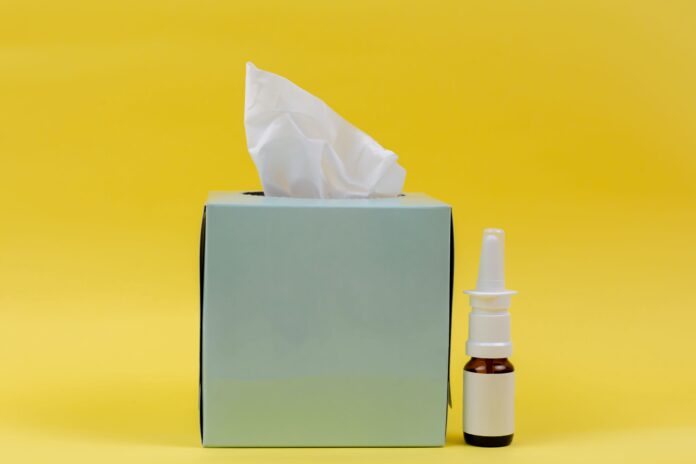
IF YOU’VE noticed yourself sneezing uncontrollably over the last few weeks, you’re not alone. The peculiar mix of mild but very wet weather has meant an increase in certain pollens that cause havoc for anyone suffering from hay fever. Like any allergy, hay fever is an over-reaction by the immune system to what should be an innocuous substance, in this case, pollen. But fear not sufferers, help is out there.
While you can avoid a food allergen by eliminating the culprit food, it’s quite difficult to entirely avoid pollen completely. Rather, there are tactics you can employ that boost your immunity so you are less likely to react in the first place.
Pump up the spice
You’ll be pleased to hear, if you like spicy food, that it’s very beneficial if hay fever is giving you problems. The pungent nature and volatile oils found in chillies, cayenne, and other spicy foods are known to clear congestion and flush out the sinuses – as you’ll know if you’ve taken a bite of hot curry or spicy chilli sauce.
So rather than reaching for mints when you feel stuffed up, try a few drops of tabasco in hot water for its mucokinetic (mucous-clearing) action.
Fail to prepare, prepare to fail
While it may be a little late now to put this next step into practice, you can bear it in mind for the coming autumn-winter season.
By taking a small daily dose of live yoghurt (with bacteria such as Bifidus or Acidophillus), along with a local honey, you build up a natural resistance to pollen before the pollen is even in season.
You have to start about three months before the hay fever starts troubling you to get the desired effect. Ordinarily, anyone suffering from sinus congestion is warned to stay away from mucous-forming dairy products, but yoghurt is slightly different in that it is already fermented or ‘pre-digested’, making it easier to assimilate.
If it’s the case you simply can’t take lactose products, you could choose a good dairy-free probiotic supplement instead for similar immune-boosting benefits.
Where honey is concerned, it’s crucial that it’s a local honey, as foreign honeys will not be made from the same pollens that trigger your allergies. Avoid overly-processed honeys, which are basically liquid sugar and not at all the same as cloudy, dark unprocessed honey.
If you can source bee pollen, all the better. Truly a superfood, you only need tiny amounts to get a therapeutic effect. Try adding a couple of granules to live yoghurt. In very rare cases, an allergic reaction can show for bee pollen. Try one pellet to begin with and if you notice anything unusual – swelling, rash or heat – avoid.
Tear to your eye
I’ve mentioned here before just what good immune-boosters the allium family are and this certainly applies to hay fever protection too. Whether it’s onions, leeks, garlic, or scallions, this sulphur-rich family helps to chase out any toxins that may be irritating the mucous membranes, as well as providing a rich source of quercetin, which helps to calm a whole range of allergic reactions.
Where possible, use lightly-cooked or even raw, as long as they don’t irritate your stomach.
Citrus seed extract, made mainly from grapefruit seeds, is an extremely bitter remedy which works like an all-in-one first aid kit. Just one of its uses is in treating hay fever and the sinus problems and nasal congestion which are potential complications of hay fever itself.
Being a potent remedy, this should also be used sparingly, starting with just a few drops until you are used to it. Various brands are available, so it’s important to follow the instructions on the packaging to get the right dose.
Apart from these specific interventions, there are a number of other factors that can have a negative impact on the immune system, e.g. lack of natural light, heightened sensitivity to stress, poor sleep pattern, and smoking and alcohol consumption, to name just a few. It’s important to resolve these issues to get to the bottom of a chronic condition like hay fever.
Be aware too that salt and processed foods are of little nutritional value, often using up more minerals and trace elements in their elimination than they provided in the first place. As such, they are best avoided and replaced with immune-boosting foods like brightly-coloured fruits and vegetables, zinc-rich foods like shellfish and pumpkin seeds, and of course, essential fatty acids from oily fish and omega 3 seeds like linseeds.
And yes, you’re probably tired of hearing it, but stay hydrated. Sip on room temperature water throughout the day so any irritation to your mucus memebranes can be more readily flushed out.










